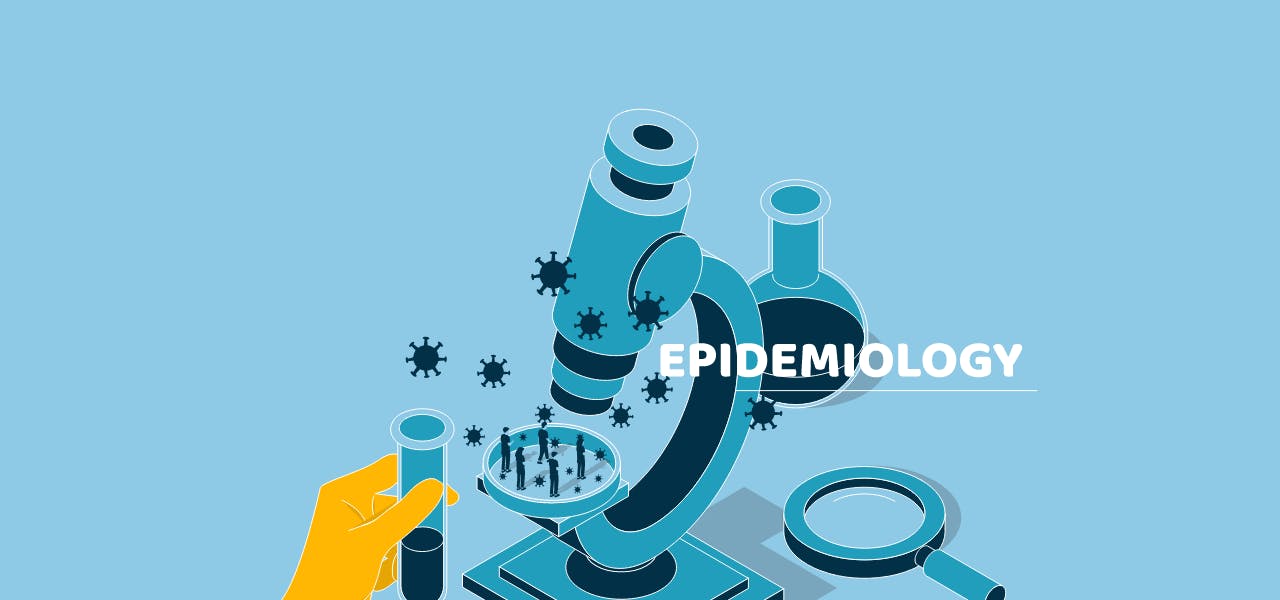If you’re interested in becoming a researcher, it’s a rewarding field full of intellectual challenges, hard work, and incredible benefits. Those who want to make a difference in the world on a large scale often go into fields like epidemiology, where public health challenges are the entire scope of the job.
The importance of solving public health challenges early has never, in our lifetimes, been more evident than it was with the COVID-19 pandemic. Epidemiologists were tasked with immediately learning about an in-the-moment virus that was killing thousands of people daily. Without expert people trained to analyze and apply knowledge to the virus, it would have run even more rampant. Instead, over time, epidemiologists were able to predict how it occurred, limit the exposure, and create vaccines with the intent to mitigate the risk. While we hope to never see anything like the COVID-19 virus again, those in the field of epidemiology can help stem the spread of them, and other diseases. If this sounds like something you’d be interested in, you can get started with this roadmap.
Some Major Public Health Issues in History
We as a collective society tend to take major contagious diseases with a lax attitude because it’s been generations since we have seen a major breakout. However, the timeline of infectious and contagious diseases has shown us that the opposite is actually true: we should always be on our guard against the unexpected when it comes to nature and the spread of viruses and other microorganisms, making epidemiologists an essential part of science for centuries.
Epidemiologists have been responsible for helping the global society get through major public health issues like:
● The Bubonic Plague, from 1347 to the 1700s when researchers were finally able to come up with an antiserum to treat it, and antibiotics are now used to keep it from spreading when it does occur.
● Cholera - Ultimately, seven cholera pandemics would occur over 150 years, with the first one beginning in 1817. Cholera was a small intestine infection that started in Russia and spread through feces-infected food and water. It quickly went global as British soldiers took it to India and beyond. The vaccine was created in 1885, but by that time, hundreds of thousands of people would die.
● The Spanish Flu - Today’s COVID pandemic was likened to the Spanish Flu of 1918, in which an avian-borne virus spread from Europe into the U.S. and Asia, then beyond, killing over 50 million people before it was stopped. The strain finally ended in 1919 as a result of those who would be infected, had died or developed an immunity.
Over the years, many other pandemics and major public health outbreaks would be responsible for millions of deaths. Epidemiologists have been able to mitigate these fatalities by preventing or stopping further cases.
The Epidemiologist Roadmap
As an epidemiologist, you’ll be responsible for analyzing health information and collecting data that helps share information about how sickness and disease occur and are treated. Your knowledge will be used to regulate treatments, determine public policies, and help private sectors further their own research and development areas.
The job of an epidemiologist includes planning and directing studies that will end up preventing, treating, and anticipating public health challenges. You’ll be collecting and analyzing data through everything from studies to biological sampling, then communicating your findings to the correct audience. Your information, with you guiding it, will be used to manage and develop certain public health programs, and you’ll be supervising those personnel that work alongside those programs in order to monitor the progress being made and figure out how to optimize the techniques being used.
The track to becoming an epidemiologist starts with a bachelor’s degree in biology or another biological science. From there, the most traditional route involves obtaining a master’s in public health with a focus on biostatistics, health services, and epidemiological methods.
To become more knowledgeable in the field, continuing education is recommended in the areas of biochemistry and molecular biology so that you can obtain a specialization. Once you have all of this background, you can expect to find work at places like health departments, hospitals, universities, or at the federal government. You may choose to work at a federal agency like the Centers for Disease Control and Prevention (CDC) or a private organization that employs epidemiologists.
No matter where you work, your job is one of those that you hope will never have to be used to its truest potential, but you are prepared and always on the cutting edge of technology and information, just in case.
Using Impactio to Boost Your Professionalism
Your job might not always bring out high-impact work like when a pandemic occurs, but consistency and hard work helps you to always remain professional. You’ll need to continue to have high productivity while pushing towards your goals, and to do this, it helps to use a professional software solution like Impactio.
Impactio is a platform highly recommended by many academic scholars around the world. If your goal is to look professional with impactful research that is presented to your audience timely, Impactio is the tool you need to get the job done. The program guides you through each step as you turn your research into a PDF manuscript or create web pages. Whatever you need to do to save the world from infectious diseases or do whatever your job leads you to, Impactio can help you.
